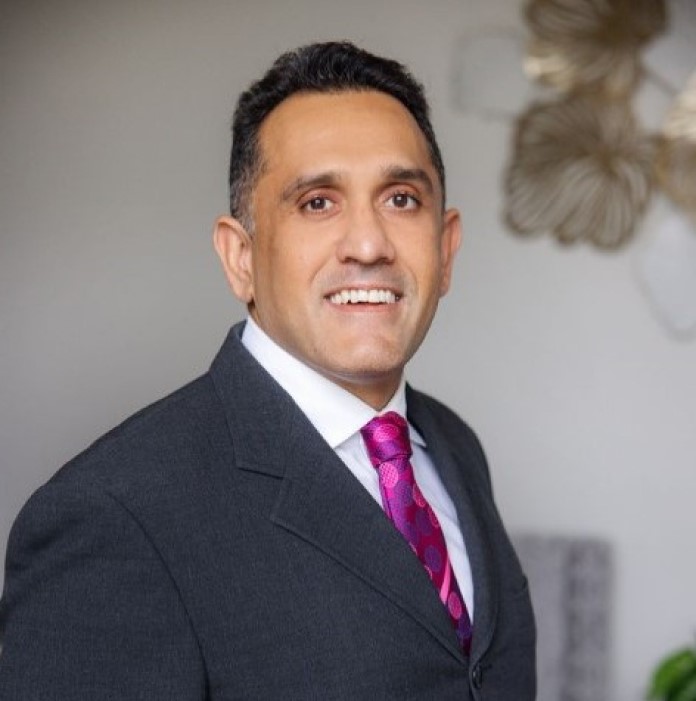The term “men’s health” might bring to mind images of intense workouts and chiseled abs. And while cardiovascular and muscular fitness is vital, men’s health is more than just what happens at the gym — it’s also about what’s happening on your plate, in your mind and in the bedroom.
In June, we recognize Men’s Health Month as a time for education and a call to action. Individuals and communities can focus on the well-being of men and boys and encourage men to take charge of their health. Let’s dive deeper into the details of why men’s health month is so important and how men can take steps to improve their physical, mental and sexual health.
Why is Men’s Health Month so important?
While men may realize that ongoing healthcare maintenance is important, it’s still challenging to get them to address their issues proactively. The fact sheet from Menshealthmonth.org shows that women are 100% more likely to visit the doctor for annual exams and preventive services compared to their male counterparts.
Also, according to the CDC, men die on average nearly six years before women born the same year. Hundreds of thousands of men lose their lives each year to preventable health problems like diabetes, heart disease and smoking-related deaths.
Understanding the reasons behind this reluctance to take preventive steps is crucial in order to bridge the gap and promote a culture of comprehensive healthcare for men. Here are a few common issues cited by experts:
- Societal Expectations and Gender Norms: Traditional gender roles have perpetuated the notion that men should be strong, self-reliant and invulnerable. This pressure discourages men from acknowledging their health concerns and seeking medical assistance.
- Stigma and Stereotypes: Men may fear being judged or labeled if they admit to experiencing problems.
- Fear of Diagnosis and Treatment: Concerns about the implications of a diagnosis on their personal and professional lives, as well as the fear of invasive procedures or medications, can deter men from seeking medical help. According to a poll reported by HuffPost, 21% of men admit to avoiding the doctor because they’re too nervous to find out what might be wrong.
- Lack of Awareness and Health Literacy: Men may not recognize the symptoms of certain health conditions or understand the importance of regular check-ups and screenings.
- Cultural and Structural Barriers: Limited access to healthcare services, financial constraints or demanding work schedules can impede men’s ability to seek medical help. Additionally, the absence of male-focused healthcare programs can contribute to a lack of targeted support for their specific needs.
We must work to close the gender gap in these areas so that all people feel comfortable proactively seeking out the healthcare they need. Ignoring medical problems will not make them go away. So we need to focus on taking actions that will help men deal with medical issues before they become more serious.
What are proactive ways for men to help their physical health?
Staying active is an essential aspect of health that most people know about. But there are additional things men need to do to improve their physical health, including improving their lifestyle choices and diets, staying on top of medical screening and self-exams and considering weight loss.
Improving lifestyle choices and diet
Statistics from the National Institutes of Health (NIH) show that men are more likely to drink heavily, smoke more cigarettes and do more illicit drugs than women. These habits can have severe health implications, causing issues ranging from lung and heart disease to liver problems and preventable accidents.
Many men could also make better choices in the kitchen. According to a study from the American Society for Microbiology, women eat far more fruits and vegetables than men, while men prefer meat and dairy. Social norms likely influence this trend. But as men become more aware of both their health needs and attitudes, they can choose to make healthier choices.
The Cleveland Clinic recommends a diet that includes plenty of fruits, vegetables, whole grains, dairy, lean meats, poultry, fish, beans, eggs and nuts. For heart health and weight management, it’s vital to eat foods low in saturated fats, trans fats, cholesterol, salt and added sugars.
Getting medical screenings and doing self-exams
Medical screenings can potentially catch a disease or other issue earlier in the process, leading to earlier treatments and better outcomes. According to the Cleveland Clinic, the following screenings are suggested for men over age 50:
- Blood pressure: High blood pressure increases the risk of many problems, including heart attack and stroke. Blood pressure should be checked at least once every two years.
- Cholesterol: High cholesterol also increases the risk of heart disease and stroke. A blood test to measure cholesterol levels should be given every four to six years to all men older than 20 who do not have heart disease. People with heart disease or other conditions may need to have their levels checked more often.
- Prostate cancer: The simple PSA (prostate-specific antigen) blood test can find early prostate cancer, but screening isn’t necessarily recommended. Talk to your doctor to see if it’s right for you and your circumstances.
- Colon cancer: All men should have colon cancer screenings from age 45 until age 75. Men with a family history of colon cancer may consider screening at a younger age, and those over age 75 may consider discontinuing screenings.
- Self-exams: There are several things men can examine and track themselves to ensure no new issues are popping up. These self-exams include monitoring resting heart rate, checking for testicular changes, examining oral health and looking for any skin changes that could indicate skin cancer.
Considering weight loss
About two-thirds of adult American men are overweight or obese, Harvard University reported. Unfortunately, this condition can contribute to many other health issues, increasing the risk of heart attack, stroke, hypertension, diabetes, gallstones, cancer, osteoarthritis, obstructive sleep apnea, fatty liver and depression. But wait, there’s more: Obesity in men also lowers testosterone, impairs fertility and contributes to erectile dysfunction.
If diet and lifestyle changes haven’t helped you lose weight, it may be time to consider medical weight loss. There is no one-size-fits-all approach when it comes to weight loss, so KC Wellness provides a method for healthcare professionals to partner with patients on an individualized weight loss plan.
Patients learn techniques for goal setting, diet management and physical fitness and may receive supplements, appetite suppressants or weight-loss injections. The overall goal is to find the underlying cause of your weight gain and establish maintainable habits for the long run. Check our recent blog responding to FAQs about medical weight loss.
How can men improve their mental health?
Men’s Health Month recognizes the importance of mental health and emotional well-being in overall wellness. Many men struggle with their mental health and the surrounding stigma, a problem that is more prevalent than we may realize. According to the American Psychological Association, 30.6% of men have experienced depression in their lifetime. This issue can be exacerbated by men’s hesitancy to seek care.
Men often face societal pressures to appear stoic, so many men perceive talking about their feelings as an uncomfortable display of vulnerability. However, the benefits of opening up emotionally are significant, as men who express their feelings verbally are less likely to express them in more harmful ways.
To address this issue, it is important to engage in conversations with the men in our lives. Encouraging them to share their day, talk about their emotions and be open can be challenging at first, but persistence can make a difference. By taking these steps, we can contribute to improving men’s mental health.
We should continue to destigmatize men’s mental health concerns and encourage men to prioritize self-care and seek the necessary support.
How is a man’s sexual health a sign of overall health?
A man’s sexual health can be vital to his overall physical and mental well-being. When a man experiences difficulties in sexual performance or encounters issues such as erectile dysfunction, it can often be linked to underlying health conditions like cardiovascular disease, diabetes or hormonal imbalances. These conditions can impact not only his sexual function but also his overall physical health.
Mental health also plays a crucial role in sexual health. Stress, anxiety, depression or relationship problems can significantly affect a man’s sexual desire, performance and satisfaction. Conversely, a healthy sexual life can contribute to increased self-esteem, reduced stress levels, improved mood and overall life satisfaction. Therefore, addressing and maintaining good sexual health can be considered an integral part of a man’s holistic approach to maintaining his overall well-being.
How can KC Wellness improve men’s sexual health?
The functional medicine practitioners at KC Wellness may be able to help men who have symptoms of sexual dysfunction. Your body possesses incredible restorative powers but may have lost some function due to age, environmental factors or imbalanced hormones.
In addition to medical weight loss, which can improve many physical issues that could affect your sexual health, regenerative medicine can help your body move, perform and regain the healing properties it once had. At KC Wellness, our focus is on using integrative medical treatments that restore overall health, energy and strength, including:
- BHRT for Men: Men of all ages can experience decreased testosterone levels. As they get older, men often experience symptoms including lost strength, higher body fat, decreased energy and diminished libido. Bioidentical Hormone Replacement Therapy (BHRT) helps men regain and maintain optimal testosterone levels.
The therapy involves testosterone made from the same chemical structure found in hormones already present in the body. By reintroducing them into the body, they can improve overall health and energy.
- E.D. Treatment: Erectile dysfunction is one of the most common sex-related issues men face. Millions of men in the United States experience it each year, with the percentages rising as they age. The condition is characterized by the inability to develop or maintain erections during sexual activity.
Our E.D. treatment involves a complete and comprehensive rejuvenation program to fully restore circulation and function with a blend of plasma, growth factors and other natural fluids with healing capabilities. Unlike other erectile dysfunction medications, this therapy treatment is tailor-made and budget-friendly to reverse the condition adversely affecting one’s intimate life.
In Conclusion
Men’s health is an issue that eventually affects everyone, so it’s in everyone’s best interest to promote it. According to Dr. Jean Bonhomme, president of the National Black Men’s Health Network, “Preventable male illness and death have a substantial economic impact on the whole of society, owing to factors such as lost time from work, disability and diminished work productivity. The health of a community is only as strong as its weakest link, so addressing the health of men and boys has the potential to benefit many others as well. A rising tide lifts all boats.”
By nurturing a culture of proactive health management and improving men’s lifestyle, mental and sexual health, we can collectively strive towards a healthier future for all men and society at large.
Consult KC Wellness
When it comes to complete wellness, there is no one-size-fits-all approach. It is a personal matter requiring an individualized plan to fit your needs and lifestyle. Without guidance and support from outside resources, successfully meeting wellness and hormonal health goals can be a challenging process for many people. At KC Wellness, we have a holistic approach to wellness. We focus on therapies and lifestyle changes that encourage safe and sustainable results.
If you are ready to see how hormone replacement therapy, medical weight loss or treatments for erectile dysfunction can improve your health and well-being, then KC Wellness may be just the place for you. Our doctors and staff are always available to answer any questions and provide guidance along the way to help you succeed. Reach out to our team today to see how we can help you in your health and wellness journey. Call us at 816-214-5276 or contact us here. There’s no reason to wait — let us help you feel your best every day. You can see all of our services HERE.

Dr. Rahul Kapur, M.D. is a board-certified family medicine physician with a dedicated passion for integrative medicine and a deep knowledge of functional medicine. He was named intern of the year at Wesley Medical Center in Wichita, KS, and has been practicing as a hospitalist for over a decade. He has successfully helped many patients in Kansas City with his specialized IV bags, ketamine therapy, hormone optimization and weight loss therapy methods.


